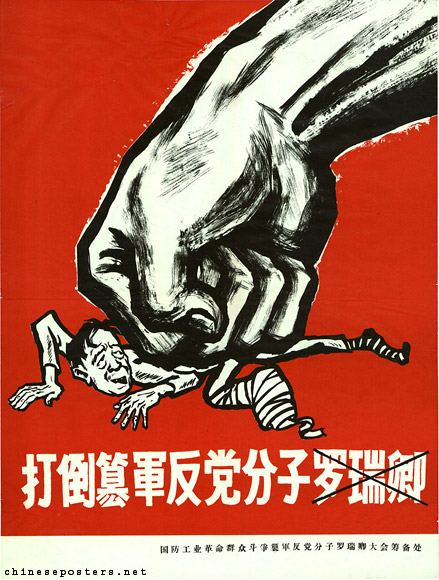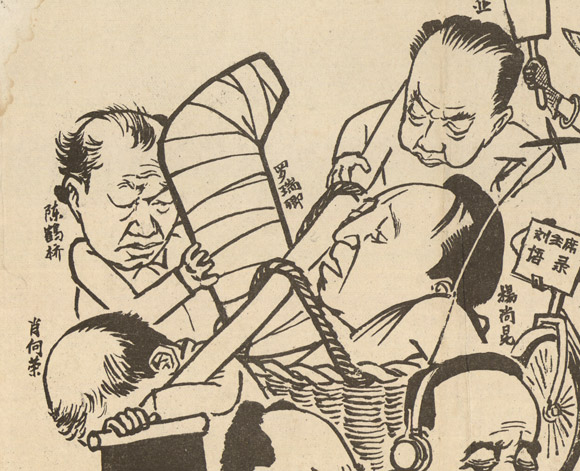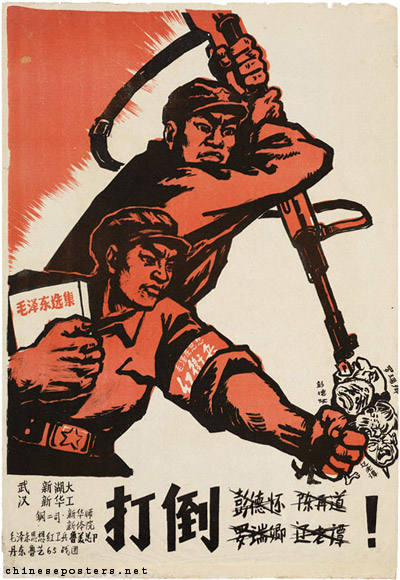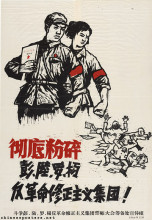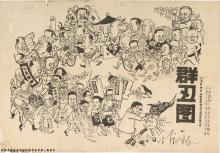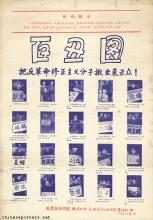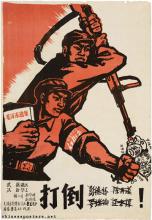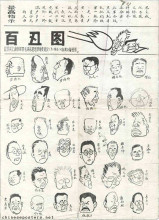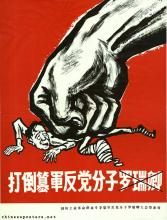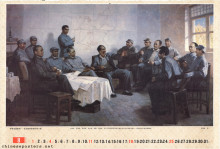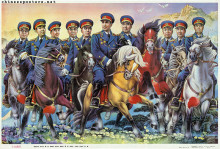Down with the usurper and anti-Party element Luo Ruiqing, ca. 1967
Luo Ruiqing (罗瑞卿, 1906-1978), joined the Communist Party in 1928. He was political security officer in the Red Army in the 1930s, and took part in the Long March. In 1949 he became Minister of Public Security. In this capacity, Luo was responsible for the security arrangements for party leaders - including Mao. Luo was promoted to the rank of General, and became Chief of Staff of the PLA in 1959. In 1964 Luo’s position came under threat. He did not agree with Minister of Defence Lin Biao’s policy of putting ‘men over weapons’, and instead emphasized the importance of military training and modernization of the army. With Mao’s full consent, Lin started building a case against Luo. Luo was accused of failing to give ‘prominence to politics’, and of plotting against Lin to take his place. In December 1965, Luo was relieved of his posts.
Detail of the 1967 poster ‘A crowd of clowns’
The case against Luo was part of a wider campaign against some of Mao’s oldest and most loyal comrades on the eve of the Cultural Revolution. Together with Peng Dehuai, Lu Dingyi and Yang Shangkun, Luo was said to have formed the ‘Peng-Luo-Lu-Yang anti-Party clique’. He was forced to attend meetings where he was ferociously attacked by his former comrades. On 16 March 1966, Luo attempted suicide by jumping from the third story of a building, but landed with his feet down. He broke both legs, but survived. This suicide attempt was ridiculed by other Party leaders (Luo should have jumped with his head down), and interpreted as an act of treason against the Party and as proof of his guilt. After some time in hospital, Luo was deemed to have recovered enough to be brought to public ‘struggle meetings’, carried on stage in a crude basket of the kind normally used to store cabbages.
Luo managed to survive all this. In 1975 he was rehabilitated by Mao, who put the blame on Lin Biao’s scheming.
Overthrow Peng Dehuai, Luo Ruiqing, Chen Zaidao, Liao Laotan!, 1967
Roderick MacFarquhar & Michael Schoenhals, Mao’s last revolution (Cambridge: The Belknap Press of Harvard University Press, 2008)
Li Zhisui, The Private Life of Chairman Mao - The Memoirs of Mao’s Personal Physician (London: Random House, 1996)
